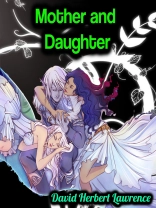‘Mother and Daughter’ can be read as one of Lawrence’s diatribes against women. Two women do their best to get along without men but in the end, as Lawrence always proposed, a woman cannot be fulfilled without a dominant man, however unsuitable he may be.
عن المؤلف
David Herbert Lawrence (11 September 1885 – 2 March 1930) was an important and controversial English writer of the 20th century, whose prolific and diverse output included novels, short stories, poems, plays, essays, travel books, paintings, translations, literary criticism and personal letters. His collected works represent an extended reflection upon the dehumanizing effects of modernity and industrialisation. In them, Lawrence confronts issues relating to emotional health and vitality, spontaneity, sexuality, and instinctive behaviour.Lawrence’s unsettling opinions earned him many enemies and he endured hardships, official persecution, censorship and misrepresentation of his creative work throughout the second half of his life, much of which he spent in a voluntary exile he called his ‘savage pilgrimage.’ At the time of his death, his public reputation was that of a pornographer who had wasted his considerable talents. E. M. Forster, in an obituary notice, challenged this widely held view, describing him as ‘the greatest imaginative novelist of our generation.’ Later, the influential Cambridge critic F. R. Leavis championed both his artistic integrity and his moral seriousness, placing much of Lawrence’s fiction within the canonical ‘great tradition’ of the English novel. He is now generally valued as a visionary thinker and a significant representative of modernism in English literature, although some feminists object to the attitudes toward women and sexuality found in his works.












